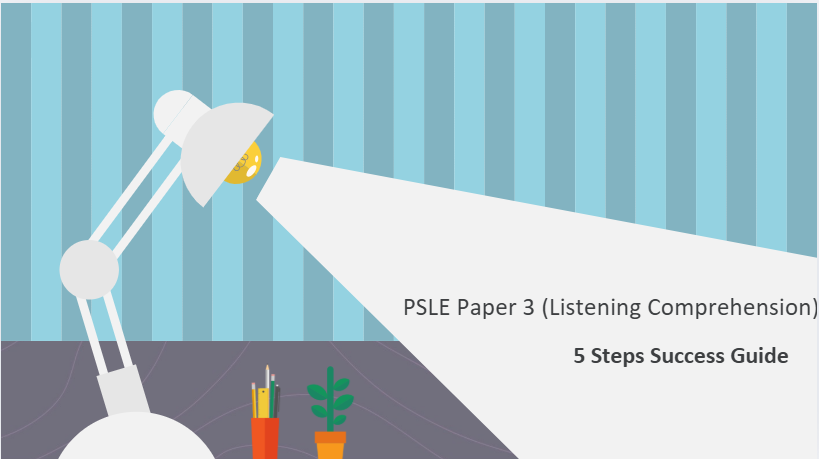PSLE English Listening Comprehension (Paper 3) Ultimate Guide for Success
- Walter Education

- Aug 10
- 2 min read
Updated: Sep 13

The PSLE English Listening Comprehension Examination (Paper 3) is a crucial component that tests a student’s ability to understand spoken English in various contexts. With 20 marks contributing to 10% of the overall English grade, performing well in this section can make a significant difference in the final score.
Exam Format & Key Details
Objective: The goal is to evaluate students’ ability to comprehend spoken English through multiple-choice questions. Each passage will be played twice, and time is allocated for students to preview the questions before the first reading.
Format:
Weight: 10% of the total score (20 marks)
Questions: 20 Multiple-Choice
Audio Playback: Each text is read twice
Duration: Approximately 35 minutes
Types of Texts: These may include news reports, public announcements, advertisements, instructions, explanations, dialogues, speeches, and stories. The first seven questions will include visual aids.
Types of Questions:
Factual: Direct questions with clear answers.
Inferential: Requires interpretation or deduction from the content.
Summary: Summarizing the overall meaning from the passage.
Pre - Exam Tips
1. Sharpen Your Listening Skills
Practice with past PSLE papers to familiarize yourself with different accents and speech speeds.
Listen to English audio materials (news, podcasts, stories) to improve comprehension.
5 Tips During Exam Day
2. Focus on Visual-Based Questions (First 7 Questions)
Pay close attention to details in pictures (e.g., actions, objects, expressions).
Listen for keywords that match the images
3. Take Notes While Listening
Jot down key points (names, numbers, instructions) during the first playback.
Use the second playback to confirm answers and fill in missing details.
4. Understand Different Text Types
Announcements: Focus on date, time, place, and key instructions.
Conversations: Identify the speakers’ opinions, feelings, and main discussion points.
Stories: Note the sequence of events, characters, and problem-solution structure.
5. Manage Time Wisely
Read the questions before the audio starts to anticipate what to listen for.
Avoid overthinking—stick to the most logical answer based on what you heard.
Final Tips from Us
✔ Stay calm and concentrate—distractions can lead to missing key details.
✔ Double-check answers if time permits.
✔ Trust your first instinct unless you’re sure of a correction.
With consistent practice and active listening, students can confidently tackle the PSLE Listening Comprehension paper and secure valuable marks.
Good luck!
Struggling with Paper 3? Get our parent-proven listening tips instantly! ⬇️ [Download]





